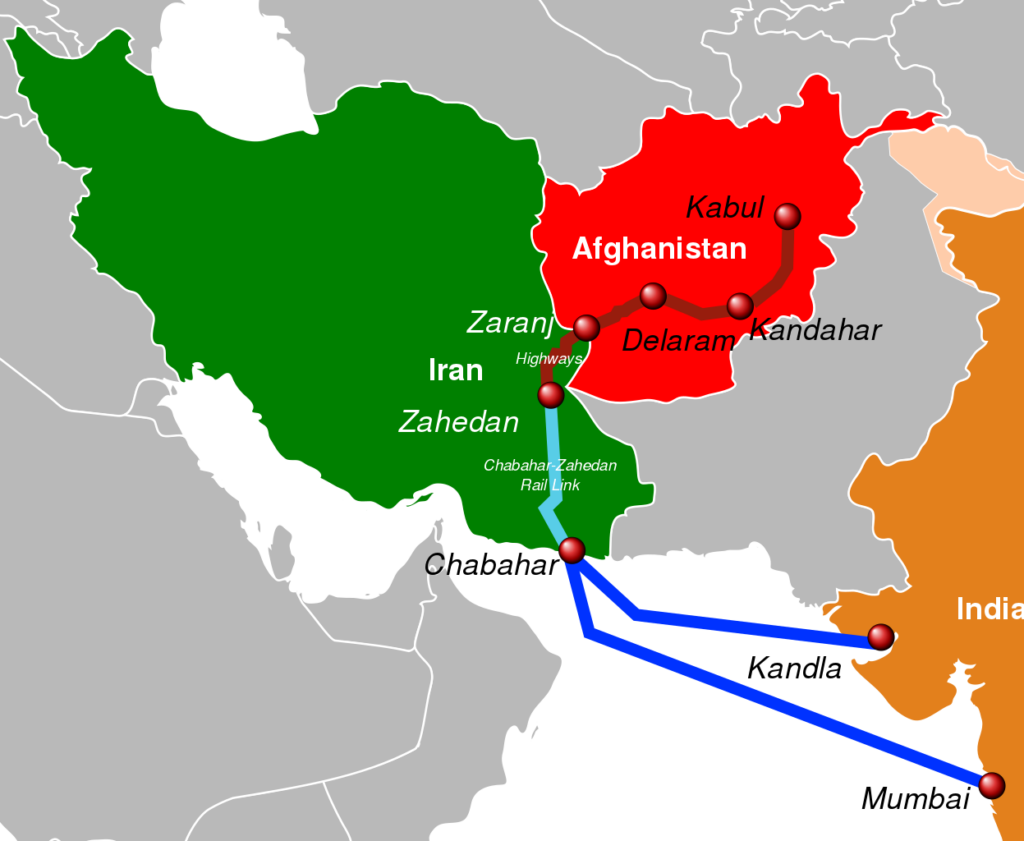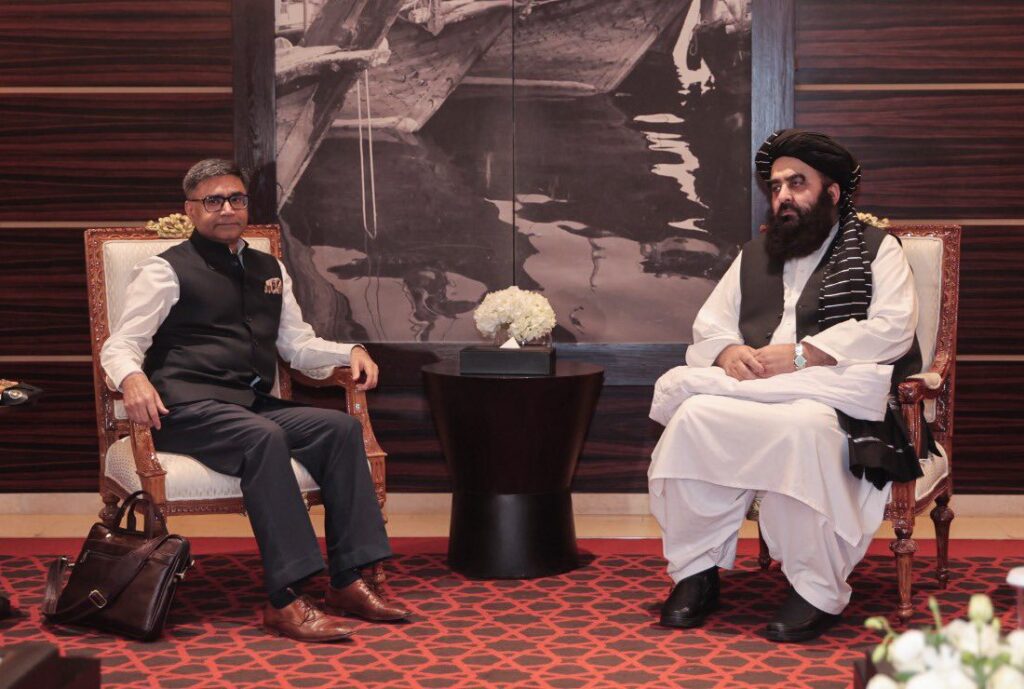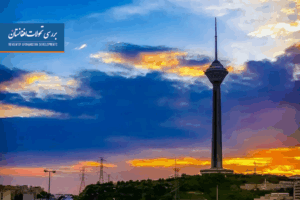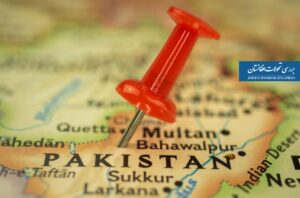Review of Afghanistan developments
The foreign minister of the Taliban government is set to arrive in the country on October 9, following an official invitation from Delhi. Amir Khan Muttaqi’s visit to India, which comes after his formal involvement in a regional meeting referred to as the “Moscow Format”, is viewed as a significant advancement in Afghanistan’s regional diplomacy in the context of international relations.
From a political standpoint, Muttaqi’s visit to India signifies a new phase in the relations between Afghanistan and India; a phase that transitions from mere “normal interaction” to a more “purposeful political and economic dialogue.” Indeed, by extending an invitation to Muttaqi, India is not only progressing towards the formal acknowledgment of the Taliban but is also illustrating to both regional and domestic stakeholders in Afghanistan the necessity for pragmatic engagement to safeguard India’s regional interests. Such a strategic move by India also clarifies the position for those who oppose the Taliban government in Afghanistan.
Reconstructed Diplomacy: A Justification for Muttaqi’s visit to India
Following the collapse of the republican system, the structure and operations of the Afghan diplomatic mission in New Delhi came to a halt. A primary objective of Amir Khan Muttaqi’s visit to India is to reactivate and reconstruct Afghanistan’s diplomatic missions within the country. After the closure of the Kabul embassy in Delhi, the Taliban government made continuous attempts to send representatives to this embassy; however, these efforts remained limited to consular matters. During Amir Khan Muttaqi’s visit to India, the political mission of the Taliban government is expected to formally commence its diplomatic and political activities. This initiative holds significant importance for the Taliban government on the international stage under the current circumstances, as any nation that accepts the political representative of the Taliban government unofficially bestows a degree of legitimacy and formality upon the Taliban government.
Formal Acknowledgment; Potential Itinerary for Muttaqi’s visit to India
Following the “wait and see” policy, India transitioned to a more interactive relationship with the Taliban government, adopting a political model of “engagement without recognition” in its new approach. Thus far, this Indian policy towards the Taliban government has been implemented effectively and consistently. In contrast, Islamabad has faced numerous fluctuations and challenges in its political strategy with Kabul over the past four years.
In the competitive environment of the region, the actions of various countries have occasionally been unexpected and “one step ahead of competitors”; as exemplified by Russia’s approach towards China, which involved utilizing the official identification card of the Taliban government. It is highly probable that New Delhi will steer the situation in this direction during its rivalry and competition with Islamabad, potentially advancing beyond Islamabad by officially recognizing the Taliban government. This strategy will certainly not only astonish Islamabad but also instigate panic and confusion.
Delhi-Kabul; Balancing Against Pakistan
The escalating tensions between the Taliban administration and Pakistan over the last three years offer significant context for comprehending the political aspects of Amir Khan Muttaqi’s visit to India. Consequently, Kabul’s warming relations with Delhi are perceived as a strategic maneuver to counterbalance Islamabad. Through this action, Kabul aims to demonstrate that its total reliance on Pakistan has concluded and that it now possesses a range of diplomatic alternatives.
From India’s viewpoint, capitalizing on Pakistan’s conflict with the Taliban government could diminish Pakistan’s capacity to exert influence in Afghanistan, thereby aiding India’s political strategy in the region. Indeed, both parties involved in this dynamic are striving to alleviate pressure from an external and third entity. The Taliban administration is eager to establish greater autonomy in South Asia by preserving its political independence from Pakistan and fostering extensive relations with India, while India aims to curtail Pakistan’s spheres of influence in neighboring regions, including Afghanistan, to manage security risks along its western frontiers.
India’s Geoeconomic Competition; Afghanistan as a Balance
From India’s viewpoint, Pakistan’s predominant and far-reaching influence in Afghanistan not only poses a threat to India’s regional interests but also constrains them. Additionally, China’s significant presence in Afghanistan further restricts the extent of India’s interests in the area.
China’s proactive involvement in Afghanistan, particularly through investments in the mining and energy sectors, and notably, projects to link Afghanistan with the China-Pakistan Economic Corridor (CPEC) project, has heightened India’s apprehensions regarding Beijing’s economic dominance in the region. Consequently, Amir Khan Muttaqi’s trip to India encompasses both economic and strategic aspects.
Recognizing the rivalry among Asian nations, the Taliban administration is making efforts to broaden its economic alliances in order to reduce its one-sided reliance on China and Pakistan. In pursuit of preserving regional equilibrium, India is also eager to play a role in bolstering the Afghan economy to avert the establishment of an economic framework that is primarily controlled by China.
In this context, a significant topic of conversation during Amir Khan Muttaqi’s visit to India is the future of Chabahar Port and the Chabahar-Afghanistan-Central Asia transit route. For the Taliban government, the ongoing operation of Chabahar represents not only a potential avenue for receiving Indian assistance to Afghanistan but also a means to lessen reliance on the ports of Karachi and Gwadar. From India’s viewpoint, the dialogue surrounding Chabahar holds equal importance to the political discussions.

Continuing humanitarian aid; India’s social influence
Following the collapse of the former Afghan government, India has remained one of the few nations to sustain the humanitarian aid channel aimed at assisting the Afghan populace, all while refraining from officially acknowledging the Taliban government. New Delhi has sought to present itself as a responsible participant in humanitarian emergencies through its policy of “humanitarian aid.” This approach has enabled India to preserve its soft power among the Afghan people. When comparing the soft policies of India and Pakistan in the context of Afghan public sentiment, it becomes evident that India enjoys greater popularity among the Afghan populace.
Pakistan was viewed as a second home for Afghans due to its support for the Afghan jihad against the Soviet Union and its acceptance of Afghan refugees. However, the policies implemented by Pakistan over the past two decades, particularly regarding Afghan refugees, have effectively nullified all of Pakistan’s efforts and expenditures during this time. In contrast, India has strategically and thoughtfully worked to enhance its relationship with both the Afghan populace and the government.
The Taliban government has embraced India’s humanitarian aid initiative as a chance to secure a fresh avenue of assistance in the diplomatic and economic landscape of Afghanistan.
Related Articles
An Analysis of India’s Special Envoy Visit to Afghanistan
The impact of the terrorist attack in India on Afghanistan
Conclusion
Amir Khan Muttaqi’s visit to India signifies a new chapter in Afghan diplomacy and initiates a transformation in the relations between Kabul and Delhi, steering them towards meaningful political and economic discussions. This visit illustrates India’s evolving perspective regarding the Taliban government and its unspoken intention to officially acknowledge the Taliban government. At the same timely, the reinstatement of Afghanistan’s political and diplomatic presence in Delhi serves to legitimize the Taliban government.
At the geopolitical level, Amir Khan Muttaq’s visit to India serves as a means to counterbalance Kabul in relation to Pakistan and presents an opportunity for India to mitigate the influence of Islamabad and China in Afghanistan. New Delhi aims to uphold regional geoeconomic stability by concentrating on initiatives like the Chabahar Port and other alternative transit routes. Furthermore, India’s ongoing humanitarian assistance, despite the absence of formal acknowledgment of the Taliban government, has bolstered its soft power among the Afghan populace.
In summary, Amir Khan Muttaqi’s visit to India represents the emergence of a new diplomatic realism in South Asia; a realism that not only provides the Taliban government with the chance to achieve political legitimacy on the global stage but also positions India as an active and balancing participant in the dynamics of Afghanistan.

















